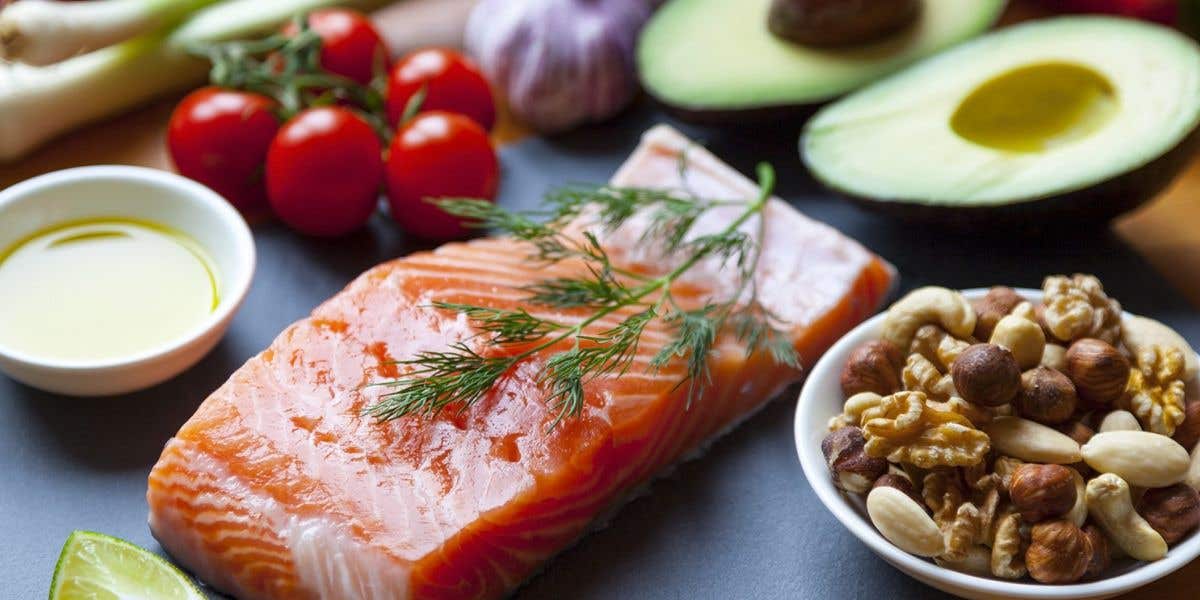Mediterranean diet can prevent physical frailty as we age, Harvard research finds
Increased vulnerability across multiple physiological systems, frailty affects 10-15% older adults, and leads to other health issues.

[July 27, 2022: Margaret Bonilla, Hebrew SeniorLife and Hinda and Arthur Marcus Institute for Aging Research]
Increased vulnerability across multiple physiological systems, frailty affects 10-15% older adults, and leads to other health issues. (CREDIT: Creative Commons)
A new study published in The American Journal of Clinical Nutrition found that consuming a Mediterranean-style diet may prevent frailty. Defined as a recognizable state of increased vulnerability resulting from a decline in function across multiple physiological systems, frailty affects 10-15% older adults, and leads to other health issues.
Although the general benefits of a Mediterranean-style diet are well known, its role in the reduction of frailty in older Americans who do not normally consume such a diet was unclear.
The study titled, “Adherence to the Mediterranean-style diet and high intake of total carotenoids reduces the odds of frailty over 11 years in older adults: Results from the Framingham Offspring Study,” showed that consuming a Mediterranean-style diet, may prevent the development of frailty with aging.
The study included 2,384 non-frail adults from the Framingham Offspring Study with Mediterranean-style dietary pattern score and antioxidant intakes [vitamin C, E, and total carotenoids] estimated from a food frequency questionnaire combined with frailty assessments that were conducted over ~11 years. Each unit higher score on the Mediterranean Style Dietary Pattern Score (i.e., higher adherence to a Mediterranean-style diet) reduced the odds of frailty by 3%.
Related Stories:
The study also determined whether specific antioxidants (carotenoids, vitamins E, and C) found in a Mediterranean-style diet are related with frailty. Higher intake of carotenoids (an antioxidant commonly found in brightly colored fruits and vegetables) had the strongest association with reduced likelihood of frailty development in middle-aged and older men and women from the Framingham Heart Study, reporting that each 10-mg higher total carotenoid intake reduced the odds of frailty by 16%. Vitamin E and C were not meaningfully associated with frailty prevention.
Courtney L Millar, Ph.D., Post-Doctoral Fellow, Marcus Institute of Aging Research, Hebrew SeniorLife, and Harvard Medical School, is the lead author. “People may be able to prevent frailty by following the principles of the Mediterranean-style diet,” Dr. Millar said.
The Mediterranean-style diet encourages consumptions of fruits and vegetables.
Descriptive criteria for study participants. (CREDIT: Institute for Aging Research)
“Increasing the intake of brightly colored fruits and vegetables that are rich in carotenoids as well as other bioactive compounds may ultimately affect the health of older adults,” said Dr. Shivani Sahni, the senior author.
The Framingham Heart Study, Boston University, and Tufts University collaborated on this observational study. This study was funded by the National Institute on Aging’s support of the Boston Claude D. Pepper Center OAIC and the Peter and Barbara Sidel Fund.
Other authors included Elise Costa, The University of North Carolina at Chapel Hill School of Medicine; Paul F Jacques, DSc, Senior Scientist, Nutritional Epidemiology Team and Professor, Gerald J. and Dorothy R. Friedman School of Nutrition Science and Policy at Tufts University; Alyssa B Dufour, PhD, Assistant Scientist II at the Hinda and Arthur Marcus Institute for Aging Research, Harvard Medical School; Douglas P Kiel, MD, MPH, Director, Musculoskeletal Research Center and Senior Scientist, Hinda and Arthur Marcus Institute for Aging Research, Harvard Medical School; Marian T Hannan, DSc, MPH, Co-Director, Musculoskeletal Research Center and Senior Scientist, Hinda and Arthur Marcus Institute for Aging Research, Harvard Medical School; and Shivani Sahni, PhD, Director, Nutrition Program and Associate Scientist, Hinda and Arthur Marcus Institute for Aging Research, Harvard Medical School.
For more science and technology stories check out our New Discoveries section at The Brighter Side of News.
Note: Materials provided above by Hebrew SeniorLife Hinda and Arthur Marcus Institute for Aging Research. Content may be edited for style and length.
Like these kind of feel good stories? Get the Brighter Side of News' newsletter.
Joshua Shavit
Science & Technology Writer | AI and Robotics Reporter
Joshua Shavit is a Los Angeles-based science and technology writer with a passion for exploring the breakthroughs shaping the future. As a contributor to The Brighter Side of News, he focuses on positive and transformative advancements in AI, technology, physics, engineering, robotics and space science. Joshua is currently working towards a Bachelor of Science in Business Administration at the University of California, Berkeley. He combines his academic background with a talent for storytelling, making complex scientific discoveries engaging and accessible. His work highlights the innovators behind the ideas, bringing readers closer to the people driving progress.



